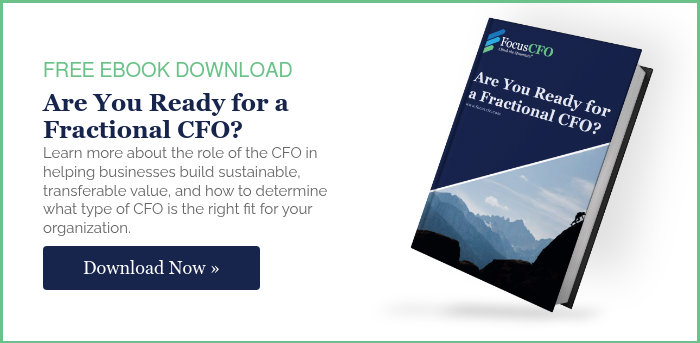The historical stereotype of the interaction between the CFO and the VP Sales usually involves images of fervent battles over excessive spending and ways to cut sales costs. Like most stereotypes this is a false understanding of the CFO’s potential impact on sales.
The best way to understand the CFO’s approach to sales is to list the potential questions a CFO asks when addressing this critical component of a company’s overall operation. Questions may include:
-
Have we carefully broken our sale process into value-add steps and are we applying the appropriate skills, effective and efficient resources at each stage?
-
Do we have a well-defined sales process with measurable metrics and performance indicators?
-
Are we targeting our sales efforts, resources and expenditures to the most profitable accounts/product lines?
-
Does our expenditure of sales resources by channel/segment/region coincide with the profitability for each of those?
-
Can we profitably accelerate growth with added sales resource?
Question #1 & 2: CFO as Expert at Business Process
In many companies a salesman is responsible for (1) cold calling to identify prospects, (2) making preliminary qualification calls, (3) development of full proposal packages, (4) presentation to potential clients, (5) negotiating the final order terms and prices, (6) closing the deal, and then (7) managing the post order follow-up process through delivery. The skill sets and impact in each of these 7 steps can be quite different. The process can be broken up and responsibilities assigned to lower cost and appropriately skilled staff and, for example, focus the skilled negotiator salesman on steps 4-6.
A CFO is typically viewed through the bias of a financial lens. However, a CFO is an expert at business processes and creatively seeking ways to optimize the company’s business processes to make them more effective and efficient. The sales process in most companies is one of the least measured except for the final result of “daily bookings”. A CFO will challenge and question the existing sales processes, and once optimized seek metrics to manage the process not just the outcome (“bookings”).
Questions #3 & 4: CFO as Expert in Margins
These questions raise core strategic issues for a business. Where do we make our money? A CFO will
seek to define margins by various segmentation variables such as product line, geography, sales channel, accounts. The margins achieved in each can be mapped against the resources required or assigned to pursue these segments. The results show you were the gold is buried and sometimes where there is no gold at all, just quicksand.
Question #5: CFO as Expert in Growth Management
Here the CFO looks to the future and makes assessment based on measurable experience. Does added sales efforts yield increased sales? Do the rewards exceed the costs? In this context sales effort can be things besides add manpower, but additional marketing or other sales inducements that are intended to spur growth.
Particularly in smaller companies, the sales functions rarely include in-depth financial expertise. Unlike larger companies with product management staff who will undertake much of the same analyses and strategic challenging of the status quo, smaller companies can rely on the CFO to undertake these efforts. Your CFO can be a great asset to understanding and developing strategic plans, for sales based on sound analysis.
Todd Peter is a Principal with FocusCFO based in Cleveland, OH.







